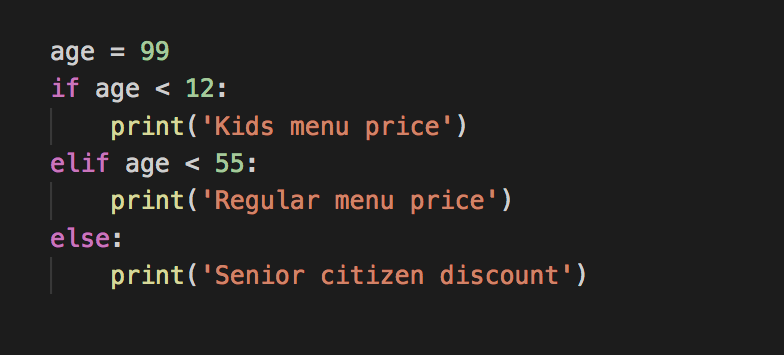Python Log¡c
Checks a Condition
Decision making based on conditions
Python Comparison Operators
> greater than
< less than
>= greater than or equal to
<= less than or equal to
== equality
!= inequality
If Statement
Checks for only one condition
Checks Condition
True/False
Executes Statement
True
False
If Statement
- The boolean expression after the if statement is called the condition
- The colon is required after the condition
- The lines (statements) after the colon must be indented
- If condition is true, the statements will get executed
- If condition if false, nothing happens

If Else Statement
Checks for two conditions
Checks Condition
True/False
Statement 2
False
True
Statement 1
If Else Statement
- When you are checking when a condition is true and when it is false
- If the first condition passes, the first statement will be executed, if it doesn't the else block will be executed instead

Chained Conditionals
Checks for more than two conditions
Checks Condition
True/False
Statement 2
False
True
Statement 1
Next Condition
True/False
True
Statement 3
False
Chained Conditionals
if-elif-else chain
- When a condition passes, the code following the test is executed and the rest of the test will be skipped
- You can use an many elif block as you like
- Python does not require an else block at the end of an if-elif chain
